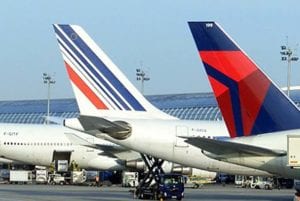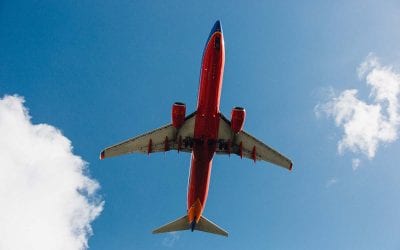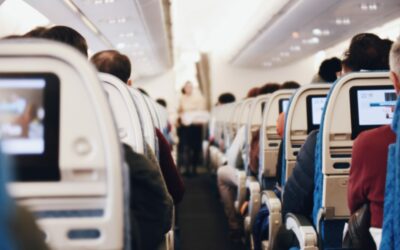The airline industry is moving quickly to undo consumer protections.

A court has also blocked a new rule requiring upfront disclosure of airline service fees, saying the government had not complied with procedural rules.
This is just the beginning. But what does it mean for travelers?
These are confusing times to travel
Which rules will be removed? Which ones will remain? Even consumer advocates will have difficulty keeping up, but we will.
During the next few months, as airlines petition the government to remove as many consumer protections as possible, the only certainty will be confusion.
Here’s what to look for:
- Consumer rules may disappear without notice. That’s especially true of the most recent government protections, unveiled just before the change in administration. Airlines are likely to go after those first and try to dismantle them.
- Airlines could start acting like they own the place. I wouldn’t be surprised to see a little more swagger from U.S. airlines now that they have a friendlier administration. In other words, don’t be surprised to get a “take-it-or-leave-it” attitude when it comes to service — and compensation
- Airline complaints will take off. Remember, many air travelers will try to complain to the Department of Transportation, which, under the current administration, may be less receptive to consumer problems. (Elliott’s nonprofit is always happy to help.)
But how will that affect your next flight?
These consumer protections could stick.
One consumer protection likely to stick is the Federal Trade Commission’s (FTC) new junk fee rule, which eliminates mandatory hotel resort fees. Hotels must clearly and conspicuously disclose the total price, including all mandatory extras, whenever they display or advertise a price for short-term lodging.
What’s so significant about that? Before this rule, hotels could show any mandatory fees at the end of the transaction, by which time many consumers had already made up their minds about the purchase.
Imagine booking a Las Vegas hotel room advertised at $99, only to discover at checkout that mandatory resort fees for the pool, gym, and wifi push your nightly rate to $150. Under the new FTC rule, the $150 total must be shown upfront, and no more surprise fees will be buried in the fine print at the end.
It’s likely to survive because it’s a bipartisan rule. (Even the new FTC commissioner hinted that he would support the new junk fee ban.)
Another keeper:
The Department of Transportation’s expanded protections for airline passengers with disabilities. Key provisions include requirements for safe and dignified assistance, enhanced training for airline staff who assist passengers with disabilities and handle wheelchairs, and prompt assistance with boarding and airport connections. This rule faced no significant opposition from airlines and is scheduled to go into effect in mid-January.
These new rules may not surpass the new administration looking to undo consumer protections.
The Consumer Financial Protection Bureau (CFPB) issued a policy statement that’s good news for loyalty program members. It declares that travel rewards programs reducing the overall value of points already earned or purchased by consumers may be illegal.
In other words, if you earn miles through your credit card and the card devalues those miles by requiring more points for an award ticket, you could violate the law.
Picture this: You’ve spent two years charging everything to your airline credit card, carefully accumulating 100,000 miles for that dream trip to Paris. Then suddenly, without warning, the airline doubles the miles needed for that route from 100,000 to 200,000. Under the CFPB’s new stance, such bait-and-switch tactics could be banned. Southwest has just done this, more or less, with the new changes coming soon to their frequent flier program.
Unfortunately, the CFPB itself may not survive the next presidential administration, at least in its current form. Plans are reportedly underway to curb the bureau’s regulatory reach. And even though loyalty program members are endlessly frustrated by the devaluation of their awards, no one is likely to stop moving the goalposts anytime soon.
Compensation is based on the disruption caused by the airline.
Another one that’s on the endangered list is a compensation rule proposed by the Department of Transportation. It would require airlines to offer passengers cash compensation and rebook them for the next available flight. In addition, they would cover meals, overnight lodging, and related transportation expenses when a disruption is caused by the airline. For example, passengers would get at least $200 in compensation for an airline-caused flight delay of a minimum of three hours. The rule would follow similar (but not identical) laws in Canada, Brazil, the European Union, and the United Kingdom.
Airline and delayed-lost baggage rule.
Finally, the coming airline and delayed-lost baggage rule, which will pay for delayed or lost luggage and late flights, will face a withering fire from the airlines as it moves through the rule-making system. We mentioned it in the introduction. Don’t count on that either. It is already in trouble. [Editor’s note.]
But these proposed rules depend on the next administration to see them through, and that might not happen. The incoming DOT secretary is a former TV host and professional lumberjack who reportedly takes a dim view of regulation. As a congressman, he had a strong record of voting against consumer protections. The rule will probably have to wait another four years.
What this means for passengers.
If you’re flying soon, you will be packing a lot of that doubt and uncertainty in your luggage. But don’t worry, it’s not as bad as it sounds.
Regulations like the few that protect you when you fly take years to create. There’s also a lengthy administrative rulemaking process to undo them (assuming the current administration follows the law, of course). The current administration will need to get started soon if it wants to dismantle the existing rules, and it will need another four-year term to finish the job.
Also, dropping some common-sense consumer protections, like the full-fare pricing rule, would be deeply unpopular and an evident favor to the airline industry. And there’s a consensus that the government has already done enough to help airlines after giving them more than $80 billion during the pandemic.
The takeaway: Regulations typically take years to adopt and undo, so there’s no need to panic.
READ ALSO;
Six ways DOT is not delivering passenger protections
Know the real rules for best compensation when you are bumped

Christopher Elliott is an author, consumer advocate, and journalist. He founded Elliott Advocacy, a nonprofit organization that helps solve consumer problems. He publishes Elliott Confidential, a travel newsletter, and the Elliott Report, a news site about customer service. If you need help with a consumer problem, you can reach him here or email him at [email protected].





